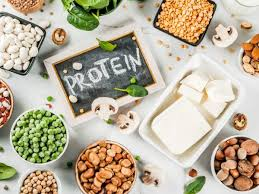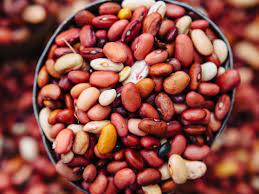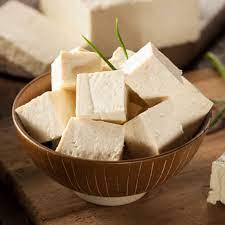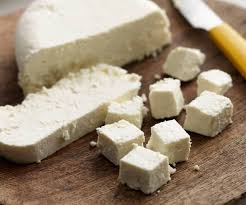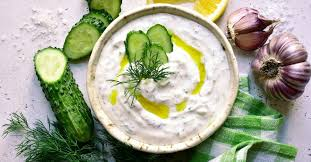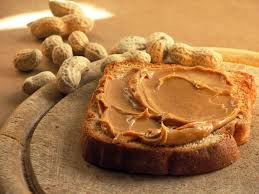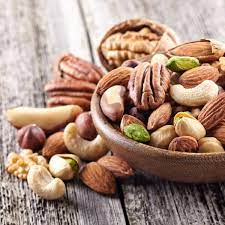Proteins for vegetarian - need to realize by vegetarian
Categories: Daily Diet Daily Exercise Fitness Health Fitness and Health
Protein is a necessary amino acid that, when broken down, helps in muscle building and repair, metabolism, and immune system strength. The adoption of a vegetarian or flexitarian lifestyle is growing in popularity, but one of the most frequent concerns or even barriers is feeling that you won't get enough protein. Make sure you consume enough protein in your diet if you are a vegetarian or simply trying to reduce your meat intake (also known as a flexitarian). Without eating meat, you can still get enough protein. For many other vital processes, including the synthesis of hormones, antibodies, and enzymes as well as blood coagulation, fluid balance, immune response, and eyesight, we require protein. To have the full knowledge, read the entire article.
There are numerous convincing arguments for including proteins in your diet. Proteins play a crucial role in the development of bones, muscles, skin, and cartilage. Protein is required by your body to create and repair tissue.
They are crucial for hormone control and for oxygenating the entire body. These are essential for building lean muscle, reducing muscle loss, hastening muscle recovery after intense activity, and maintaining a healthy weight. For energy and vitality, make sure you are obtaining the recommended daily consumption of protein.
It's a common fallacy that cutting meat from your diet will result in a major reduction in your protein consumption. The availability of plant-based protein, however, makes going the vegetarian or flexible route easier than ever. And many of us who consume a diet high in animal proteins actually consume too much protein.
Reduced meat consumption has three positive effects. Your health comes first, obviously. Vegetarian diets have been linked to numerous preventive health benefits, including lowered risks of heart disease, cancer, high blood pressure, and type 2 diabetes, according to a substantial body of research. Additionally, vegetarians' levels of LDL cholesterol (bad cholesterol) and body mass indices are lower (BMIs). Second, cutting back on meat will help you stretch your budget because vegetarian proteins, particularly legumes, are much less expensive than meat and other animal proteins. Vegetarian sources of protein are also considerably better for the environment.
Vegetarians can acquire strong protein from the following foods. There are various kinds of vegetarians; some still consume fish, dairy products, eggs, and/or a combination of those things while abstaining from meat. Vegans won't be affected by all of the following (those who abstain from all animal products).
- Beans
Legumes are the most cost-effective vegetarian protein sources, so eating them is a wonderful way to enhance the protein in your diet without going overboard. They are also incredibly adaptable. There are numerous varieties of protein-rich beans available, each with distinctive flavours, textures, and colours. Due to their high protein and fibre content, beans make any dish more full. Being high in both soluble and insoluble fibre helps decrease cholesterol and support a healthy digestive system.
Each cup of beans contains 12–14 grammes of protein. And may the lovely lentil live forever! 18 grammes of protein may be found in one cup of cooked lentils.
- Tofu
For vegetarians, vegans, and meat eaters alike, tofu is a fantastic option. Because of its adaptability, it is a flexible type of fermented soy that is high in protein and excellent for cooking.
There are two types of tofu: standard and silken, and each has a varied level of hardness. Scrambled eggs and other foods that include more gelatin are acceptable substitutes for silken tofu. You'll need firm tofu for stir fries and other recipes.
Most importantly, tofu is low to nonexistent in carbs and high in calcium, making it perfect for folks who are eliminating dairy from their diets. Tofu can be used in breakfast, lunch, dinner, or dessert, which is almost unmatched by any other food in terms of versatility.
- Paneer
9–18 grammes of protein can be obtained daily by consuming only 50–100 grammes of paneer. Kids between the ages of 9 and 13 need about half as much protein as they get from 100 grammes of paneer. Paneer is a great method to boost your protein consumption, even though it might not be practical to eat it every day. Aim for two to three times each week.
It can be used in a sandwich or salad, or combined with palak or other seasonal vegetables to produce a curry.
- Greek yoghurt
Use this thicker, strained yoghurt instead of regular yoghurt since it contains up to twice as much protein. Warren chooses 2% or even whole yoghurt over non-fat varieties because they make you feel fuller and satiated. When feasible, choose organic products; recent studies have shown that these products have higher levels of heart-healthy omega-3 fatty acids than their conventional counterparts.
Look for plain Greek yoghurt and add your own personal touch of sweetness to it with fruit or a natural sweetener like agave or honey.
- Peanut butter
This is the justification you need to consume more peanut butter. Each two tablespoons of peanut butter contains about 7g of protein. To start your day off well, mix it into a smoothie, spread it on toast or, even better, over pancakes, or stir it into your oatmeal. Monounsaturated fat, which can lower levels of "bad" LDL cholesterol, is an excellent source in all forms.
- Nuts
Nuts include a lot of protein, but they also have a lot of calories. Nuts should be routinely ingested, but in lower amounts and not as the primary source of protein. Because they include antioxidants, minerals, and healthy fats, they also have a variety of other health advantages. As a garnish for salads and desserts, use nuts. Indian foods like upma and pulao taste great when cashew nuts are used as a garnish.
A handful of roasted almonds is a wholesome treat. You can add peanuts to Indian curries, poha, salads, and other dishes.
- Chia seeds
A good option might be chia seeds. While they can be expensive if purchased from the supermarket's health department, you can frequently find them for less elsewhere.
Chia seeds contain 5 grammes of protein per 2 tablespoons, making them a complete protein source. It tastes wonderful when added to sweets or yoghurt.
Bottom line
At the conclusion, we'd like to draw attention to the fact that the sources mentioned above are widely accessible and can be incorporated into your diet. You can see that getting enough protein while eating a vegetarian or plant-based diet is not difficult. The secret is to be well-informed and use that knowledge while organising your regular meals.
